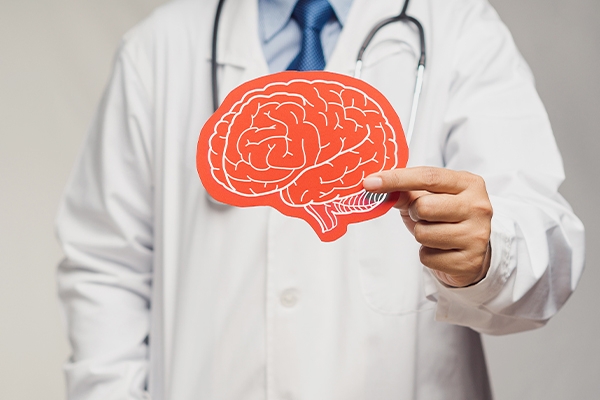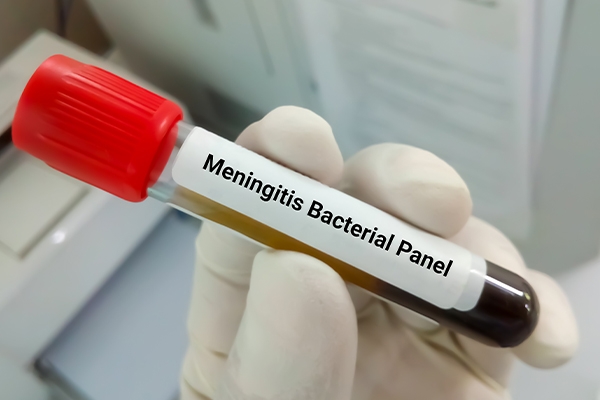What Is Meningitis and How May It be Prevented?

The World Health Organization (WHO) set a goal to eradicate meningitis by 2030. However, the CDC (American Centers for Disease Control and Prevention) warned of an increase in cases of deadly meningitis in March 2024.
Meningitis can be a life-threatening infection and inflammation caused by viral, bacterial, parasite, or fungal pathogens that infect the meninges, the membranes that cover the brain and spinal cord. This disease is hazardous since it has a high risk of causing death.
Even with antibiotic treatment, 10 to 15 out of 100 people with meningococcal disease will die. Up to one in every five survivors will experience long-term disability.
How is it transmitted?

Anyone can get meningitis. Particular groups at higher risk include those with weakened immune systems, certain age groups (children younger than one year old, teenagers and young adults aged 16 to 23 years, and elderly aged 65 years and older), those who work in infectious environments, and tourists.
Some cases of meningitis improve without treatment within a few weeks, while other cases can cause death and require emergency treatment. However, early diagnosis and treatment are critical for a better prognosis.
Infection can be transmitted from person to person through respiratory droplets, close and prolonged contact, such as kissing, sneezing, or coughing, living with someone who is infected, sharing drinking cups, eating utensils, or personal items, such as toothbrushes.
Infections typically cause meningitis. Cancer, certain medications, or other inflammatory processes can also trigger meningitis. If meningitis is an infection, it is usually caused by bacteria or viral.
Factors that increase the risk

The following are several factors that can increase a person's risk of developing meningitis:
- Not getting immunizations, such as Hib, MMR, pneumococcal, and meningococcal vaccines.
- Children under five years old.
- Babies are susceptible to meningitis because they have not received complete vaccinations. A weakened immune system also makes their bodies unable to fight infections.
- Pregnant mother.
- Elderly people. This age group is also vulnerable to meningitis because of their inadequate immunity.
- Live in a densely populated residential area.
- Traveling to meningitis-prone regions such as sub-Saharan Africa.
What are the signs and symptoms of meningitis?

The most common symptoms are fever, a severe headache, and a stiff neck. Additional symptoms are:
- Nausea or vomiting
- Double vision
- Sensitivity to bright light/photophobia
- Altered mental state (confusion)
- Fatigue (feeling tired)
- Colds hands and feet
- Aches or severe pain in the muscles, joints, chest, or abdomen (belly)
- Rapid breathing
- Diarrhea
- In the later stages, a dark purple rash
- Seizures
- Bacterial meningitis may be associated with kidney and adrenal gland failure and shock.
Important signs to look out for in babies suspected of having meningitis include:
- Fever
- Lethargy
- Not waking for feedings or refusing feeding
- Vomiting
- A stiff body with jerky movements or else floppy and lifeless
- Unusual grunting sounds
- Blotchy skin that gets paler or turns blue
- Unexplained/unusual irritability
- Full or bulging fontanel (the soft spots on the top of the head).
How is meningitis diagnosed?
The doctor and medical team will perform a neurological examination, examination of blood, urine, and body secretions, as well as analysis of cerebrospinal fluid through lumbar function.
How do you prevent meningitis?

- Avoid sharing food, utensils, glasses, and other object with someone who may be exposed to or have meningitis.
- Communal living areas should be cleaned and sanitized regularly to avoid the spread of infections.
- Using a medical mask in a busy place.
- Limit outdoor activities at night, or if you are in a place prone to mosquitoes or insects, wear long-sleeved clothing, use insect repellent in a particular region, and avoid visiting places that pool water where mosquitoes and other insects breed.
- Vaccines are available to prevent Haemophilus influenza, pneumococcal meningitis, and meningococcal meningitis.
There are two quadrivalent meningococcal vaccines (A, C, Y, and W135) licensed in Indonesia:
a. Meningococcal polysaccharide vaccine (MPSV4)
b. Meningococcal conjugate vaccine (MCV4/MenACWY)
Several countries, including Saudi Arabia, require meningitis vaccination from Hajj pilgrims. After the meningitis vaccination, you will receive a Yellow Book (International Certificate of Vaccination).
This book is official, internationally recognized documentation of vaccination and is required to fulfill Hajj visa requirements.
Recovery period

After receiving a doctor's treatment, you can continue with home recovery for further healing. This treatment focuses on comfort, fluid hydration, and nutrition.
Here are some items of equipment that help your comfort while recovery:
1. Neck support
To relieve neck pain, use a pillow or a comfortable neck brace. This method can maintain a comfortable neck position.
2. Cold compress
Most people feel more comfortable with a cold compress (e.g., ice covered with a cloth, etc.) placed near the head, neck, or shoulders. These parts usually still feel stiff.
3. Heating pad
This is a comfortable adjustable option. You can apply a cold compress or heating pad. You can use a heating pad to relieve tension if you experience muscle spasms in your neck and shoulders due to head and neck pain.
4. Stay hydrated
Meningitis sufferers often feel tired and have a decreased appetite. Remember to drink plenty of fluids to avoid dehydration. Staying hydrated helps you recover faster once inflammation or infection has resolved.
5. Maintain nutrition
Your appetite may decrease. However, try to eat to recover more quickly once the meningitis has resolved.
6. Get enough rest.
Adequate rest is critical for recovering from infection and inflammation and aiding healing.
7. Managing stress
Anxiety and stress can interfere with the immune system's optimal. Therefore, stress reduction strategies may be beneficial during meningitis treatment.
**
Meningitis is a condition that can quickly become life-threatening. If treated promptly, you have a good chance of recovery. If you experience symptoms of meningitis, it is important to seek medical attention immediately.



